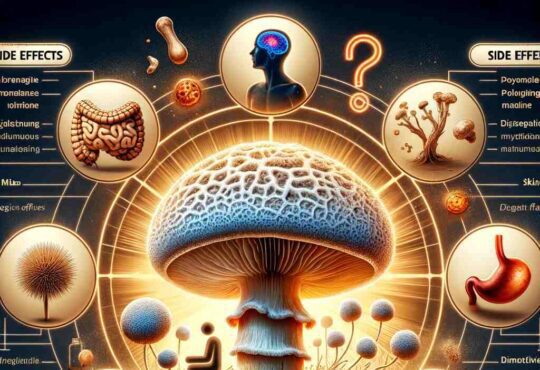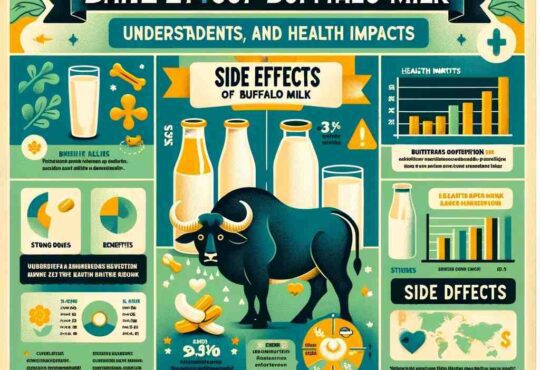Introduction
Cardiac arrest is a life-threatening condition that demands immediate attention. It occurs when the heart suddenly stops pumping blood, leading to a loss of consciousness and, if left untreated, death.
Recognizing the warning signs of cardiac arrest is crucial because early intervention can significantly increase survival rates. This article aims to educate readers about the seven warning signs that should never be ignore, in order to raise awareness and save lives.
Understanding Cardiac Arrest
It is important to understand the distinction between arrest and a heart attack. While both are heart-related emergencies, a heart attack occurs when blood flow to the heart is block, whereas arrest is characterize by an abrupt cessation of the heart’s electrical activity. Cardiac can be cause by various factors, including heart disease, electrical abnormalities in the heart, drug misuse, severe blood loss, or traumatic injury.
Warning Sign #1: Chest Discomfort
During arrest, individuals may experience intense and persistent chest discomfort. This discomfort is often describe as a crushing or squeezing sensation that radiates into the arms, jaw, or back.
It is essential to differentiate this symptom from other chest-related conditions, such as heartburn or muscle strain. Ignoring this warning sign could have devastating consequences, as prompt medical intervention is necessary.


Warning Sign #2: Shortness of Breath
Shortness of breath or difficulty breathing can be an indication of an impending arrest. Individuals experiencing this warning sign may feel a sudden tightness in their chest, making even simple tasks like climbing stairs or walking short distances challenging.
If shortness of breath becomes increasingly severe or is accompanied by other symptoms, such as chest discomfort or lightheadedness, it is imperative to seek immediate medical attention.
Warning Sign #3: Fatigue and Weakness
Fatigue and weakness can often be overlook or attribute to other causes. However, these symptoms can be an early warning sign of cardiac arrest. People experiencing fatigue and weakness may find it difficult to complete everyday tasks or may feel persistent exhaustion even after a good night’s sleep. It is important not to ignore these signs, especially if they are out of the ordinary or accompanied by other warning signs.
Warning Sign #4: Dizziness and Lightheadedness
Dizziness and lightheadedness are common warning signs of impending cardiac arrest. These symptoms may be accompanied by a feeling of unsteadiness or a spinning sensation.
While occasional dizziness may not necessarily indicate a problem, it is crucial to pay attention when dizziness becomes frequent, severe, or is accompanied by other warning signs. Seeking medical attention promptly can help identify and address the underlying cause.
Warning Sign #5: Palpitations and Irregular Heartbeat
Palpitations, or the awareness of one’s own heartbeat, can be unsettling. Individuals experiencing palpitations during a heart event may describe it as a racing, pounding, or skipping heartbeat. This sensation can vary widely from person to person.
Additionally, an irregular heartbeat, known as arrhythmia, can also be a warning sign of cardiac arrest. It is important to take note of these symptoms, as they could indicate an underlying heart condition that requires medical evaluation.


Warning Sign #6: Nausea and Vomiting
While nausea and vomiting are often associates with gastrointestinal issues or food poisoning, they can also be warning signs of cardiac arrest. The link between cardiac arrest and these symptoms is not fully understand.
However, it is recommend to be vigilant if nausea and vomiting occur suddenly, are severe, and are accompanied by other warning signs. Consulting a healthcare professional can help identify the cause and determine appropriate next steps.
Warning Sign #7: Fainting or Loss of Consciousness
Sudden fainting or loss of consciousness is a serious warning sign of cardiac arrest. When the heart stops pumping blood effectively, the brain is deprive of oxygen, leading to loss of consciousness.
If an individual experiences a fainting episode or loses consciousness without an apparent cause, it is crucial to seek immediate medical help. This symptom should never be take lightly, as it could be a sign of impending cardiac arrest.
Early Intervention and Prevention
Early intervention plays a pivotal role in preventing cardiac arrest-related mortality. Recognizing the warning signs and seeking prompt medical attention is vital.
Additionally, adopting healthy lifestyle choices, such as exercising regularly, maintaining a balanced diet, avoiding tobacco and excessive alcohol consumption, and managing stress can help reduce the risk of cardiac arrest.
Seeking Immediate Medical Attention
The urgency of seeking medical attention when experiencing warning signs of cardiac arrest cannot be overstated. Delaying treatment significantly reduces chances of survival and increases the risk of irreversible damage to the heart and brain.
Whether one experiences one or multiple warning signs, it is crucial to call emergency services or rush to the nearest hospital without delay.


Treatment Options
When cardiac arrest occurs, time is of the essence. Immediate treatment is necessary to restore normal heartbeat and circulation. Cardiopulmonary resuscitation (CPR) is a critical intervention that can sustain blood flow to vital organs until advance cardiac life support is available.
Other treatment options may include defibrillation, medication administration, and potentially cardiac catheterization or surgery. The effectiveness of treatment depends on the speed and quality of the emergency response.
Recovery and Rehabilitation
Recovering from cardiac arrest involves not only medical treatment but also rehabilitation and lifestyle changes. Cardiac rehabilitation programs are design to help individuals regain their physical strength, emotional well-being, and overall quality of life. These programs may include exercise training, nutritional counseling, medication management, and psychological support. It is important to follow medical advice and adopt necessary lifestyle changes to reduce the risk of future cardiac events.
Summary
Recognizing the warning signs of cardiac arrest is paramount to preventing this silent killer. Symptoms such as chest discomfort, shortness of breath, fatigue and weakness, dizziness, palpitations, nausea, vomiting, fainting, or loss of consciousness should never be ignored.
Taking immediate action by seeking medical attention can save lives and provide the opportunity for early intervention and effective treatment. By promoting awareness and understanding of these warning signs, we can all play a role in combating cardiac arrest and safeguarding our loved ones.
Frequently Asked Questions (FAQs)
Q: What is the difference between cardiac arrest and a heart attack?
A: Cardiac arrest occurs when the heart’s electrical activity ceases, leading to a sudden loss of circulation. A heart attack, on the other hand, involves a blockage in the blood vessels supplying the heart muscle. While both are serious conditions, the underlying mechanisms and immediate treatment strategies differ.
Q: Are warning signs of cardiac arrest the same in all genders?
A: Warning signs of cardiac arrest can manifest differently between male and female. While chest discomfort is a common symptom for all genders, women may experience additional warning signs such as shortness of breath, back or jaw pain, and extreme fatigue. It is important to be aware of these gender-specific variations to ensure timely recognition and intervention.
Q: Can cardiac arrest be prevented?
A: While it may not be possible to completely eliminate the risk of cardiac arrest, adopting a heart-healthy lifestyle and managing underlying medical conditions can significantly reduce the likelihood. Regular exercise, a balanced diet, not smoking, avoiding excessive alcohol consumption, and managing stress are essential preventive measures.
Q: How can CPR help during cardiac arrest?
A: CPR, or cardiopulmonary resuscitation, involves chest compressions and rescue breaths that help circulate oxygenated blood to vital organs when the heart is not pumping effectively. By maintaining blood flow, CPR buys valuable time until medical professionals can provide more advanced treatment options.
Q: What should be done if a person experiences warning signs?
A: If warning signs of cardiac arrest are present, it is crucial to call emergency services immediately and seek medical help. Acting swiftly can make a significant difference in the outcome and increase the chances of survival.






